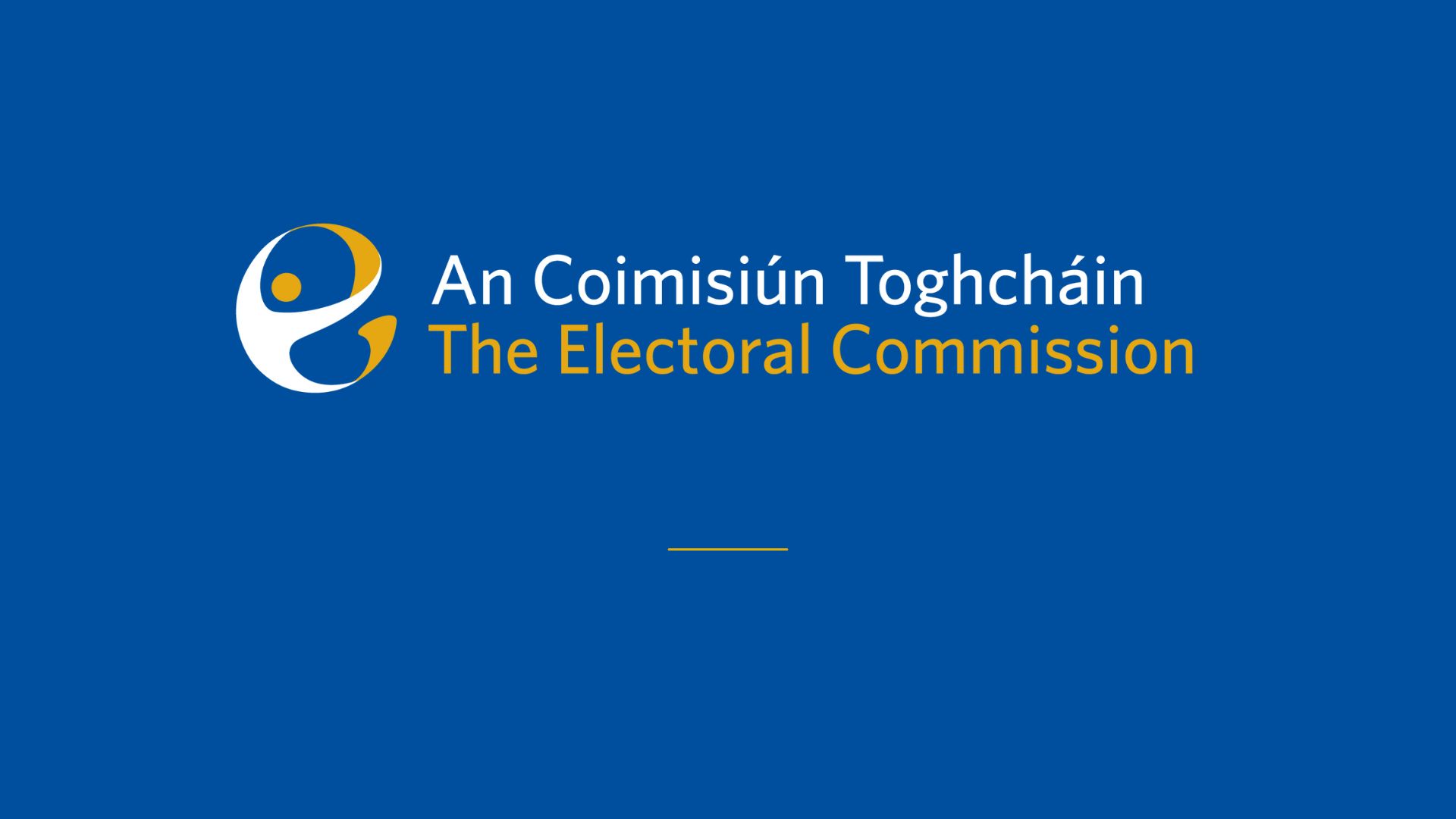Waive Charges Imposed on Disabled or Unwell Voters Ahead of Presidential Election, Recommends An Coimisiún
29 May 2025 – A Post Electoral Event Report (PEER) of November’s General Election, while noting improvements since the first PEER conducted by An Coimisiún Toghcháin in March 2024, has pointed to continued failings around access for disabled people to voting.
An Coimisiún has strongly recommended to the Minister for Housing, Local Government and Heritage that a waiver of all fees associated with medical certification for postal votes come into effect before Autumn’s presidential election.
An Coimisiún Toghcháin, Ireland’s independent electoral commission, has today published, and laid before the Oireachtas its Post Electoral Event Review (PEER) of the 2024 General Election, making eight new recommendations:
- Waive all charges imposed on persons applying for the postal vote because of illness, disability, or other medical certification.
- Review the statutory timelines following the dissolution of the Dáil to ensure voters have sufficient time to register or apply for, and return, their postal vote.
- Amend and clearly specify in the PV4 postal vote application form that attendance at a Garda station and a ‘Declaration of Identity’ are required under the occupation/student category.
- Issue guidance for polling staff on the secure disposal of any polling information cards left behind by voters.
- Review polling schemes following any changes made to electoral boundaries arising from a constituency review.
- Issue guidance to presiding officers on how to respond should electors be issued ballot papers for the wrong constituency.
- Amend election reporting forms completed by returning officers so that postal voting statistics and returns are separate from special voting data.
- As an aid to visually impaired users, freephone numbers listing candidates in the order they appear on the ballot paper should be prominently displayed on returning officer and government websites. Audio files should also be provided on these websites.
Members and staff of An Coimisiún Toghcháin visited 87 polling stations across 26 counties from Árainn Mhór off the shores of Donegal, to Sherkin Island of Cork on 29 November 2024 observing voting procedures and conditions.
Staff teams also oversaw the issuing of postal votes in a number of locations; the dispatch of a number of postal votes to Ireland’s diplomatic missions overseas”; special voting taking place in nursing homes in the Tipperary North constituency; and witnessed firsthand, alongside the Irish Wheelchair Association, the experience of electors with disabilities being supported in travelling to polling stations and casting their ballot in Mayo.
Over the course of three PEERs, An Coimisiún has witnessed improvements regarding election administration and infrastructure. The report notes that a genuine effort to improve the accessibility of certain polling stations was in evidence and pays credit to returning officers and polling staff.
An Coimisiún Toghcháin noted in isolated cases, errors in some Dublin constituency polling schemes and separately also noted particular issues with the non-delivery of polling information cards to voters in the Limerick City constituency.
Art O’Leary, Chief Executive of An Coimisiún Toghcháin stated:
“Ahead of presidential elections this year, and all future elections it is vital we take each poll as an opportunity to learn and improve upon voting processes and practices. We are pleased that there were some observable improvements at polling stations since our visits during previous electoral events in March and June.
“However it is simply unjustifiable that some voters should have to pay to get access to their vote.
“Every polling station and polling booth should afford every elector the right to vote in privacy and with dignity.”
ENDS
For further information, please contact:
Alice Kiernan, Communications, An Coimisiún Toghcháin.
087 2046205 /alice.kiernan@electoralcommission.ie
– ENDS-
Editor’s Note:
The Post Electoral Event Review Report on the 29 November 2024 General Election is available at the following links:
English version / Leagán gaeilge
This PEER Report is published under Section 68 of the Electoral Reform Act which provides for such reviews and is a report on the administration of the electoral event concerned.
An Coimisiún Toghcháin, The Electoral Commission
An Coimisiún Toghcháin is a statutory, independent body, established on 9 February 2023 with responsibility for a broad range of electoral functions set out in the Electoral Reform Act 2022.
An Coimisiún is central to Ireland’s electoral system, carrying out a range of existing and new electoral functions, including:
- overseeing the modernised Electoral Register, making recommendations and setting standards in relation to its maintenance and updating;
- promoting public awareness of, and working to increase public participation in the State’s electoral and democratic processes through education and information programmes;
- responsibility for the registration of political parties;
- preparing research programmes and conducting research on electoral policy and procedure, and providing advice, as required, to the Minister and Government;
- the preparation of ex-post reports on the administration of electoral events;
- the decision-making, oversight, secretariat and supporting services associated with explaining the subject matter of referendum proposals, the promotion of public awareness of referendums and encouragement of the electorate to vote at referendum polls; and
- the conducting of reviews and making reports in relation to the constituencies for the election of members to the Dáil and the election of members to the European Parliament.
- making reports for the Minister in relation to local electoral boundaries;
- the regulation of online paid-for political advertising, ensuring transparency in respect of online political advertisements during the period of an election or referendum campaign; (Legislation not yet commenced); and
- responsibility for the investigation and monitoring of online disinformation, online misinformation and manipulative or inauthentic behaviour online during election campaign periods, as well as functions to prevent manipulative or inauthentic behaviours online. (Legislation not yet commenced).
It is anticipated that the initial set of functions assigned to An Coimisiún will be expanded upon as it builds capacity and expertise.
